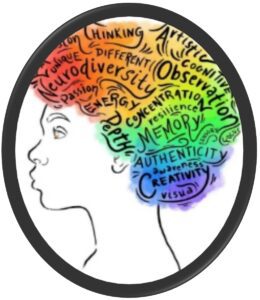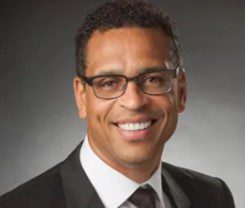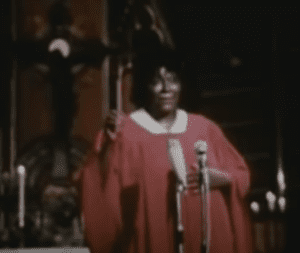By Alice Doyel
Guest blogger

 “I am not interested in power for power’s sake, but I’m interested in power that is moral, that is right, and that is good.”
“I am not interested in power for power’s sake, but I’m interested in power that is moral, that is right, and that is good.”
– Dr. Martin Luther King, Jr.
Dr. King’s Words Describe the Character of Dr. Benjamin Danielson
 League of Education Voters of Washington state (LEV) members have had opportunities to hear Dr. Danielson speak over the years. On January 26, 2021, Lauri Hennessey, CEO of LEV, initiated LEV’s Washington Game Changers podcast. This podcast features leaders who give back to our community, drive innovative solutions, and inspire others in making our state more equitable and just. Dr. Danielson was the initial guest for this podcast. Dr. Danielson talks about his personal and career journeys, historic changes in health care in Seattle for BIPOC residents, his life-long work to advance racial equity, and how we can bring equity to the people experiencing racism, understanding that equity lifts up the entire community. A must-listen-to podcast! https://educationvoters.org/washington-game-changers-podcast-dr-ben-danielson/ (43 min)
League of Education Voters of Washington state (LEV) members have had opportunities to hear Dr. Danielson speak over the years. On January 26, 2021, Lauri Hennessey, CEO of LEV, initiated LEV’s Washington Game Changers podcast. This podcast features leaders who give back to our community, drive innovative solutions, and inspire others in making our state more equitable and just. Dr. Danielson was the initial guest for this podcast. Dr. Danielson talks about his personal and career journeys, historic changes in health care in Seattle for BIPOC residents, his life-long work to advance racial equity, and how we can bring equity to the people experiencing racism, understanding that equity lifts up the entire community. A must-listen-to podcast! https://educationvoters.org/washington-game-changers-podcast-dr-ben-danielson/ (43 min)
Dr. Danielson Describes the King County Program to End Youth Incarceration
Read the University of Washington Medicine/Newsroom article (Sept 30, 2021) about this program. https://newsroom.uw.edu/news/new-program-led-dr-ben-danielson-keep-youth-out-jail This article includes a 3 min, 47-sec video by Dr. Danielson. The following is the transcript of Dr. Danielson’s video.
“This county, King County, in Washington state, has committed to ending youth incarceration by 2025. That is not that far away. And we have a lot of work to do as a county and as a region and as a community to make sure that we have the infrastructure, especially community-based infrastructure to make sure that when youth are not put into detention and not imprisoned like that, that we have the kind of spaces and places that allow them to receive justice and also to receive the possibility of restoring themselves to a path that they want to be on.”
“By putting people in prison, who are folks that just need, they need our love, and our support in addition to our strong sense of what it means to be part of a contributing part of society. You have that hard date and this hard work that comes with that. And then you have these other opportunities to build communities that have the resources necessary to make it not necessary to incarcerate a young person.”
“I just think it’s important for us to do this very basic work of connecting dots. So I really look forward to partnerships with folks who are interested in say early learning, those first moments of finding your second teachers after your parents and spending time in the earliest parts of the educational system, and that those seeds of experience are directly related to issues that happened downstream, like youth incarceration. We need to care beyond our reach, beyond our direct contact points, we need to act as if we are in contact with people that we might never meet or see or get to know. And when we do that, right, we’re building Beloved Communities. We’re doing what we say we care about doing.”
“I think the perspective of behavioral health, mental health, psychology, psychiatry, and the services that really care about the mind is so critically important because we have under-invested not only in the treatment of mental health issues but in the sustenance of mental health well-being. And this is an opportunity for us to really name that. Invest in that even more deeply. Confirm that we say that’s important and actually make the kinds of changes that need to happen for that. A mentor of mine called it ‘make the walls of the University more porous.’ And what that means is just making it really feel like this amazing University, University School of Medicine, the broader campus, all of the much-revered talent that’s here is accessible as a space where any young child, a child who looks like me, can look to the University and say, I could see myself being there someday, and the university could look at any child and say, even if you don’t come here and wear purple and gold, even if you don’t come here and end up wearing a stethoscope, we care about your future because your future is our future.”
“The word AHSHAY in a lot of African American and African culture is a phrase that sort of means, let it be so, or sort of Amen, or sort of This Should Be. And I think that’s a statement of reaffirmation. That is really important. When you hear something really cool, you say AHSHAY.”
In Order to Rectify Past Racial Injustice, to Support Racial Equity, to Provide a Strong, Secure Future for BIPOC Youth, Listen to Dr. Danielson: Racial Equity in Education, October 8, 2020 https://youtu.be/3R9BHIFZxsY?t=1341 (33 min)
 https://www.youtube.com/watch?v=TmR1YvfIGng (3 min, 40 sec)
https://www.youtube.com/watch?v=TmR1YvfIGng (3 min, 40 sec)
“We Shall Overcome”, sang by Mahalia Jackson, at a Live Performance in the Late 1960’s
The song has a long history. It began as a work song. Slaves in the fields would sing, “I’ll be all right someday.” It became known in the churches. A Methodist minister, Charles Albert Tindley, published a version in 1901: “I’ll Overcome Someday.” The first political use came in 1945 during a strike against the American Tobacco Co. Black and White workers marched together and sang on the picket line, “We will overcome, and we will win our rights someday.” Martin Luther King, Jr. said “We Shall Overcome” defined their movement and became their theme song. For more of the song’s history, https://www.npr.org/2013/08/28/216482943/the-inspiring-force-of-we-shall-overcome
Next Blog Post: The IF Program: To Reduce Incarceration for Girls and Young Women
Lyrics for “We Shall Overcome”
We shall overcome, we shall overcome
We shall overcome someday.
Oh, deep in my heart, I do believe,
We shall overcome someday.
We are not afraid, we are not afraid,
We are not afraid today.
Oh, deep in my heart, I do believe,
We shall overcome someday.
We are not alone, we are not alone
We are not alone today
Oh, deep in my heart, I do believe,
We are not alone today.
The truth will make us free; the truth will make us free,
The truth will make us free someday.
Oh, deep in my heart, I do believe,
We shall overcome someday.
We’ll walk hand in hand, we’ll walk hand in hand,
We’ll walk hand in hand someday.
Oh, deep in my heart, I do believe,
We shall overcome someday.
The Lord will see us through, the Lord will see us through,
The Lord will see us through someday,
Oh, deep in my heart, I do believe,
We shall overcome someday.
Black and White together, Black and White together,
Black and White together someday.
Oh, deep in my heart, I do believe,
We shall overcome someday.
We shall all be free, we shall all be free,
We shall all be free someday,
Oh, deep in my heart, I do believe,
We shall overcome someday
